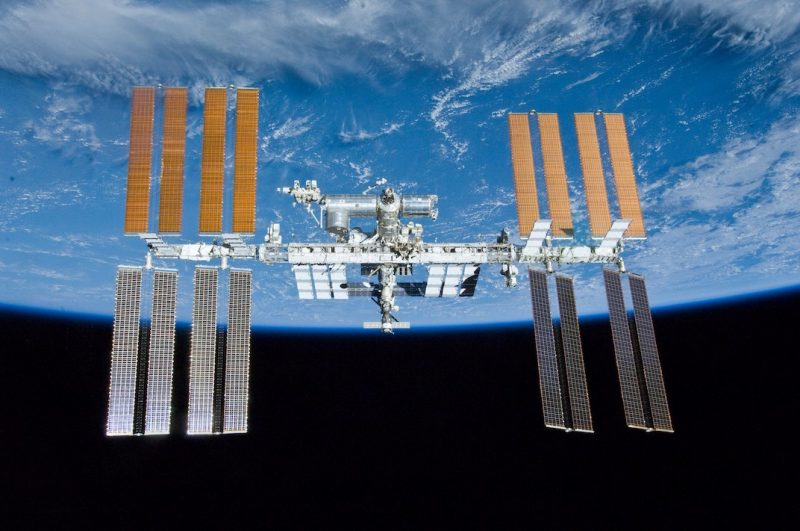We’ve had a visitor from outside our solar system (https://www.nasa.gov/feature/jpl/small-asteroid-or-comet-visits-from-beyond-the-solar-system). Okay, so it was just an asteroid. A lot of people with overactive imaginations are probably disappointed, but such is life in the real world.
Speaking of aliens, there is evidence that alien microbes have attached themselves to the International Space Station (ISS). In a article originally published in AmericaSpace and reprinted on EarthSky, Russian cosmonaut Anton Shkaplerov discovered bacteria in samples swabbed from the outside of the ISS in 2014. All we know so far is the bacteria were not present when the spacecraft was launched. Shkaplerov said, “That is, they have come from outer space and settled along the external surface. They are being studied so far and it seems that they pose no danger.” Other bacteria have been found on the space station, specifically on computer tablets, but we know these came from Earth.
was launched. Shkaplerov said, “That is, they have come from outer space and settled along the external surface. They are being studied so far and it seems that they pose no danger.” Other bacteria have been found on the space station, specifically on computer tablets, but we know these came from Earth.
Of course, this news still needs much investigation before any conclusions are drawn. There are many different microorganisms on this planet, and some getting propelled into a low-Earth orbit is not outside the realm of possibility. They can exist in the upper atmosphere and at least one type can survive in space, at least for awhile. In 2007, some live tardigrades (water bears) were sent into space on the outside of a FOTON-M3 rocket for ten days by European researchers; 68 percent of them survived the return to Earth. We have to assume that other types could survive as well. Or this could be a previously unknown species living in the upper atmosphere, or maybe even a know species that has mutated under the harsh conditions of space. Recalling how a flatworm being studied on the space station grew an extra head and Russian cosmonauts once claimed to have found traces of sea plankton on the windows of the ISS, anything is possible.
So for those longing to be contacted by a higher life-form from another world, it probably isn’t going to happen. If there is life on other planets, be it Mars or one of the moons of our solar system’s gas giants, it will probably be a type of hearty microorganism. Or we may end up finding more new species of ours.
Taken from the article “Are Alien Microbes Hitching a Ride On The International Space Station” by Paul Scott Anderson in Space, December 5 2017 ( http://earthsky.org/space/alien-microbes-international-space-station?). Photo by NASA from that website.
